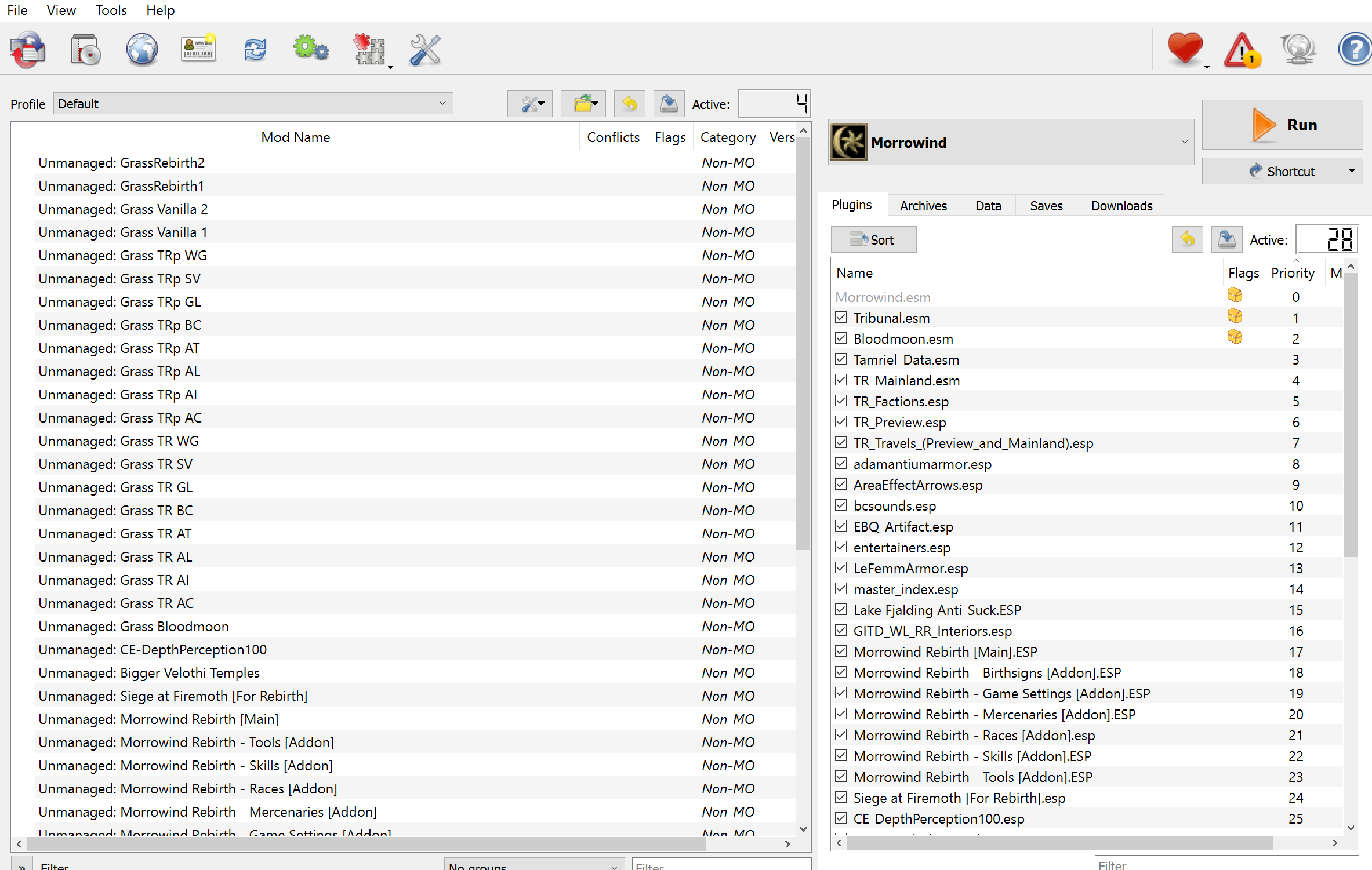Nexus Mods, ModDB, and Steam Workshop are three of the most popular platforms for PC game modifications, or mods for short. They often spawn debates about which is the best, so we thought we’d chime in and list some of the pros and cons of each, since the differences between these platforms are very significant.
Updated with thunderstore.io and r2modman
Download Speeds
Steam Workshop and Thunderstore.io download speeds are uncapped, so they will download at whatever your internet speed is capable of downloading. However, Steam Workshop might have a file size limit; it varies per game.
Nexus Mods only has uncapped downloads for those with a paid premium subscription, and who wants that? Free Nexus is limited to merely 3 MB/s download speed, or 1.5 if you’re using an adblocker. These days almost everyone is capable of downloading at speeds significantly faster than this.
But believe it or not, this is not the single deciding factor to which platform is best, but it is important.
Winner: Everything but Nexus Mods (barring possible file size limits for Steam Workshop)
Loser: Nexus Mods (without paid subscription)
Automation
Steam Workshop is all very automated. Select subscribe and the mod automatically installs. Select unsubscribe and it automatically uninstalls. Workshop mods are updated automatically on their own through Steam. r2modman is the same way, which connects to Thunderstore.io. It should not be necessary to manually download and install mods in 2022, for any game with serious mod support that is.
Automation is a bit more limited with Nexus Mods, but still present. Another tool is needed to automatically install and remove mods; there are several options out there, but Mod Organizer 2 is generally agreed upon as being the best. The tool needs to support the game in question, and for supported games you can have the tool install/uninstall mods for you, and update mods as well. It also does not need to be used with Nexus Mods, but doing so is convenient since there’s an integration for it. Mod Organizer 2 also automatically detects conflicting files while Steam Workshop and ModDB don’t do this, but more on this later.
However, Mod Organizer 2 is quite out of date from an automation perspective, as you still have to browse through a website like Nexus and download mods individually.
ModDB on the other hand is a completely manual process, which some people will actually prefer especially for any game where you want a version freeze on some mods (although Nexus is good for this too).
Winner: Steam Workshop and Thunderstore+r2modman
Loser: ModDB
Platform Exclusivity
Here we have one of the most obvious differences: Steam Workshop only works for Steam games, since it is a built in Steam feature while Nexus Mods and ModDB are just websites. You cannot download a mod from Steam Workshop without owning the Steam version of the game that the mod is for. This significantly reduces the platform’s usefulness, especially when there are so many reasons to prefer other platforms like GOG or itch.io.
Winner: Nexus Mods, Thunderstore, ModDB
Loser: Steam Workshop
File Transparency
Since Nexus Mods and ModDB are both just websites, it’s very easy to see what exact files are being downloaded. You have no such transparency with Steam Workshop. You cannot know what exact game files are being downloaded and not every game stores Steam Workshop mods the same way. This is particularly inconvenient for anyone who wants to alter mods they download, or anyone who wants to know about specific compatibility issues by knowing what exact files are changed.
Winner: Nexus Mods and ModDB
Loser: Steam Workshop
Organization and Search Function
You would think a search function is an easy thing to get right in 2021, but there are considerable qualitative differences between the search function and how results are displayed between these three platforms. Steam Workshop generally requires more tinkering with the filters to find what you’re looking for, even with more popular mods. ModDB is the least organized with regard to mod categories however, so if you don’t know exactly what you’re looking for when browsing ModDB, expect to spend more time searching and browsing. It also isn’t very effective at partial matches.
Less organized than ModDB is Thunderstore.io however. While it has a good search function and mod categories, mod uploaders are required to submit very little information, so you’ll frequently see blank mod pages with no images. Who wants to download that? Mod pages are missing common features like image sections too, and you cannot even post comments on mod pages. Thunderstore does have good version tracking.
Nexus Mods is very organized with its robust use of categories not unlike Steam Workshop, but the search function seems more accurate. Although they have made it too difficult to locate the mod categories feature, this isn’t present in enough UI tabs.
Winner: Nexus Mods
Loser: Thunderstore
Version Tracking
Here we have a clear victory for Nexus Mods. The ability to categorize files as being main, old, optional, and dedicated fields for versioning leads to superior version tracking and management. ModDB and Thunderstore are not quite as detailed, but for the most part are good enough.
A Steam Workshop page can only have a single file due to its subscribe/unsubscribe functionality, so its simplicity limits its functionality here.
Winner: Nexus Mods
Loser: Steam Workshop
Conflict Detection and Resolution
Steam Workshop, despite its automation, also has no such mechanisms. This combined with the lack of transparency which disallows you from seeing what exact files are being downloaded makes conflict resolution even more inconvenient. But you can at least easily unsubscribe from a mod to try and narrow down the compatibility issue (most games also let you enable/disable Workshop subscribed mods which is even easier). But if you want specifics on conflicting files, you are pretty much helpless due to Workshop’s lack of transparency.
Mod Organizer 2 is king here. It can connect to Nexus Mods on its own, though you can use it with mods downloaded from ModDB elsewhere too. It is useful for resolving mod/file conflicts and guiding you through the process while being very verbose. Mod Organizer 2 detects conflicts right away, making it the clear winner here.
Winner: Mod Organizer 2
Loser: Steam Workshop
Keeping the Original Game Intact
Due to the simplicity of Steam Workshop’s automation, it functions well in this category. If a mod breaks a game, you can just unsubscribe from that mod and your game will be just fine again.
Nexus Mods + Mod Organizer 2 is excellent in this category too. Mod Organizer 2 installs mods in a completely separate directory, so you can run the unmodded game alongside modded game profiles (you cannot do this with Workshop), and you can’t technically break your game with mods when using Mod Organizer 2 because of this.
Thunderstore + r2modman works the same way as Mod Organizer 2, so mods don’t affect base game installation.
ModDB is just a website, so it cannot do any of this on its own. But you can download mods from here manually, and then manage them with Mod Organizer 2. There’s just no connector. Mod Organizer 2 itself gets the nod here, and while Steam Workshop is good here, it is ultimately not as good as Mod Organizer 2’s complete isolation.
Winner: Mod Organizer 2, Thunderstore+r2modman
Loser: Steam Workshop
Malware Protection
Malware being uploaded to ModDB disguised as mods has been a problem in the past, but it has been brought to our attention that they have since stepped up their game here (see comments section below). Nexus Mods and Steam Workshop have both been scanning uploads for malware for a long time. Other download sites typically have it too.
Winner: Wash
Availability
Steam Workshop is dependent on, well, Steam. It is a massive, widely used platform around the globe, with a scheduled weekly maintenance period but also its fair share of service outages as expected for a platform this size. And when Steam is down, Workshop is usually down too. ModDB, Nexus Mods, Thunderstore have no such issues.
Winner: Nexus Mods, ModDB, Thunderstore
Loser: Steam Workshop
Verdict
As you can see, there is no clear winner. As usual, the herd of mindless drones imploring that all games should only use Steam and Steam Workshop are wrong. Never sell your soul to a corporation, it does no good for you. Steam Workshop only works for Steam games, and is a good choice if you don’t use many mods for a game and don’t plan to ever tinker with mods as its lack of transparency makes this unfeasible.
The best solution would be a free to use store with uncapped downloads like Thunderstore or mod.io but with the organization of Nexus Mods, with a launcher that combines the best of both Mod Organizer 2 (use this as a base) with the automation of r2modman. Alas, no such solution exists yet, so there isn’t a single best mod download site or launcher.
Nexus Mods is hampered by the need to pay for uncapped download speeds. The features of Mod Organizer 2 like conflict detection and resolution, keeping the game completely intact, automatic or guided installs/uninstalls, load order management, portable installs, and the fact that it’s open source, all of this strongly benefit the end user. r2modman doesn’t have as many of these, but is more automated which is a huge plus.
For mod uploaders, the very detailed mod pages of Nexus Mods and its top notch version management are most appealing, as is the fact that you’re not limiting users to a single platform. So this is the most versatile and detailed solution for both players and mod uploaders.
ModDB is a website like Nexus, though there is nothing stopping you from downloading mods from ModDB and then managing them with Mod Organizer 2, though it lacks direct plugins for mod managers. As a website, there are pros and cons it has versus Nexus Mods, with the main benefit being better download speeds compared to free Nexus Mods users, but some may find Nexus easier to use, especially mod authors. Of course, you can use both!
Of course, these aren’t the only mod platforms out there, but they are the biggest. A more recent one is mod.io, which is useful for hosting server side mods for a multiplayer game since you can point a server to a mod’s UUID resulting in that mod automatically being downloaded by the server and downloaded for any player joining the server. Far more convenient than server side modding in the past. Not many games use mod.io at the moment however, and those that do tend to use it exclusively.






 (11 votes, average: 3.27 out of 5)
(11 votes, average: 3.27 out of 5)




Hey Jester, I’m David, editor and community manager for ModDB. Regarding the Malware issue, we have AV checks that use about 100 different criteria to determine if a file is a virus or not. If it meets enough of these checks, we always remove it and our content moderators do manually check every file. The one or two times it has been escalated and reported to the editorial team, it has always been actioned. We have a zero tolerance policy for malware and purge/ban any content/users found to be malicious in nature. It’s also worth noting that as we receive… Read more »
Thanks for the correction, we’re all happy to hear about such improvements. The initial information in the article was sourced from one particular piece of malware disguised as a mod that had been uploaded for a long time, though it has since been removed. We’ve updated the article accordingly.